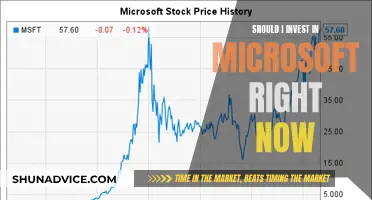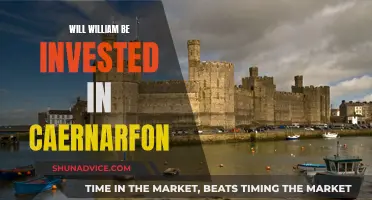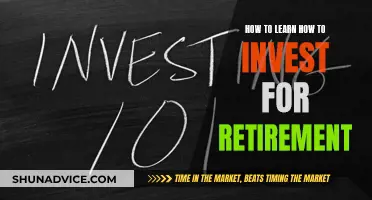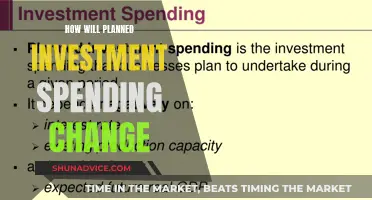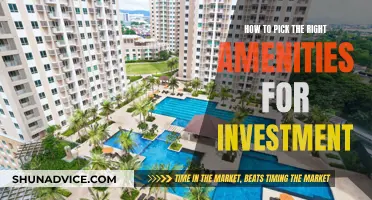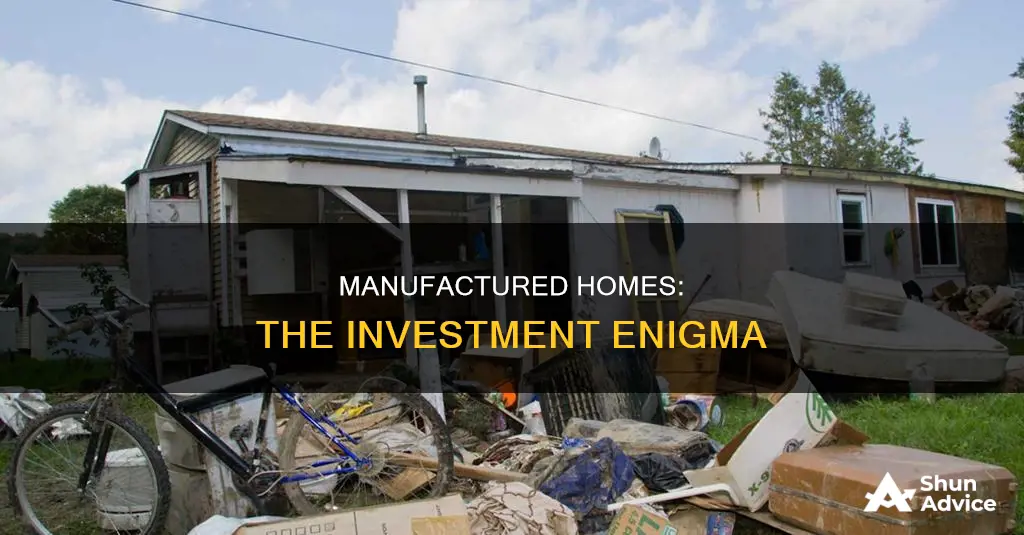
With the housing market increasing in costs drastically and the average salary staying about the same, many people are finding that they cannot afford homes. Manufactured homes have become an alternative for many people since they are affordable and efficient. But are manufactured homes a good investment?
Manufactured homes are a popular option for budget-conscious people who want to own a house. They are usually built on a steel frame in a factory and then transported to the buyer's property. They are often appealing because they can cost less than a comparably-sized stick-built house. However, they don't always have the best reputation and they certainly have their quirks. As a result, figuring out if buying one is a smart move isn't easy.
| Characteristics | Values |
|---|---|
| Cost | Lower than traditional homes |
| Construction | Quick and efficient |
| Customisation | Possible to customise |
| Affordability | A good option for those on a budget |
| Energy efficiency | More energy-efficient than traditional homes |
| Safety | Meets strict safety requirements |
| Finance | Easier to obtain financing than for traditional homes |
| Value | Drops in value over time |
| Maintenance | More maintenance than an apartment |
| Insurance | Insurance is more expensive |
| Stigma | Negative views about manufactured homes persist |
What You'll Learn

Manufactured homes are a poor investment because they depreciate quickly
Manufactured homes are built in factories and are usually assembled on-site, on a rental plot or the buyer's property. They are often cheaper than traditional homes, but this is a double-edged sword. While the low cost is a benefit for those on a budget, it also means that manufactured homes are associated with lower-income families, leading to zoning restrictions and negative perceptions that can impact their resale value.
In addition, manufactured homes are not always easy to resell. They are marketed as 'mobile', but once placed in a park and hooked up to utilities, they are difficult and expensive to move. This means that buyers are often restricted to living in the same park as the seller, reducing the pool of potential buyers.
Manufactured homes are also more likely to be on non-permanent foundations, which further reduces their value. While they can be placed on permanent foundations, this is costly and often not an option for those who rent the land.
The depreciation of manufactured homes is a significant concern for investors. While traditional homes tend to appreciate in value over time, manufactured homes are more akin to cars in that they lose value quickly. This means that they are a poor investment choice for those looking for long-term financial gains.
In summary, manufactured homes are a poor investment because they depreciate quickly, are subject to negative perceptions, are difficult to resell, and are often on non-permanent foundations. While they provide an affordable housing option, they are not a wise choice for those seeking to build wealth through property ownership.
Navigating the CD Investment Landscape: A Guide to Smart Purchasing
You may want to see also

They are also difficult to resell
While manufactured homes are a popular option for budget-conscious people who want to own a house, they are difficult to resell. This is because they are not considered "real estate" and are instead considered "chattel" or personal property. If you don't own the land that your manufactured home is on, you can't sell it without involving the mobile home park owner, which makes the sales process more complex.
In addition, manufactured homes tend to drop in value over time, which means you might not be able to sell your home for as much as you bought it. This depreciation can be particularly troubling if you have borrowed money to fund the purchase, as the home could end up being worth less than the outstanding balance on the loan.
Another factor that makes manufactured homes difficult to resell is the perception surrounding them. While some people are beginning to view manufactured homes more favourably, others still have negative opinions of them, which harms their resale value.
Finally, manufactured homes are typically not on permanent foundations, and local zoning laws may prohibit them in certain areas. This can make it challenging to find buyers who are willing to commit to living in a mobile home park or deal with the complexities of moving the home to a new location.
Buffett's Current Investment Strategy
You may want to see also

They are not as customisable as traditional homes
Manufactured homes are not as customisable as traditional homes. While it is possible to make some changes to the exterior of a manufactured home, such as adding a porch or deck, the options for customisation are limited compared to traditional homes.
Manufactured homes are typically built in factories, where each part of the home is put together in stages on an assembly line. This process allows for efficient construction, but it also means that there is less opportunity for customisation compared to traditional homes built on-site.
While some manufacturers may offer a variety of floor plans and customisation options, the choices are usually more limited than those available for traditional homes. For example, a buyer of a manufactured home may be able to choose the square footage, layout, and number of bedrooms, but they may not be able to make more extensive changes to the floor plan or structure of the home.
Additionally, manufactured homes are often built on solid steel frames and are not intended to be moved once they have been delivered to the customer's property. This can further limit the customisation options, as it may be difficult or impractical to make significant changes to the structure of the home after it has been placed on its foundation.
Furthermore, the cost of customising a manufactured home can be higher than the cost of customising a traditional home. Upgrades such as extra insulation or ceiling fans can be more expensive and difficult to install in a manufactured home.
Overall, while it is possible to make some changes to a manufactured home, the options for customisation are typically more limited and more expensive compared to traditional homes.
Employee Compensation: Strategic Investment or Necessary Expense?
You may want to see also

They are more expensive to insure
Why Manufactured Homes Are More Expensive to Insure
Manufactured homes are typically more expensive to insure than traditional homes. This is mainly due to the increased risk of damage and theft associated with manufactured homes.
Fire Damage
Manufactured homes are not more likely to catch on fire than traditional homes, but they are more susceptible to extensive fire damage. Fires in manufactured homes tend to spread more quickly, resulting in more severe damage.
Wind Damage
Manufactured homes are lighter than traditional homes and thus more vulnerable to wind damage. In regions with high winds, manufactured homes may even be required to be securely tied down to prevent them from tipping over.
Broken Pipes
Manufactured homes often lack adequate insulation, increasing the risk of pipes freezing and subsequently breaking or leaking.
Theft
Manufactured homes tend to have higher rates of theft claims than traditional homes. This may be due to their locations, such as being situated on large plots of land that provide easier access for burglars or being placed in high-crime areas.
Insurance Policy Differences
In addition to the increased risks associated with manufactured homes, there are also differences in insurance policies. Manufactured homes typically require special insurance policies designed specifically for mobile and manufactured homes, which can be more expensive than standard homeowners insurance policies.
Higher Risk, Higher Premium
Insurance is a transfer of risk, and with manufactured homes presenting a higher risk, insurance companies charge a higher premium to account for this increased risk.
Hertz: Invest Now or Miss Out?
You may want to see also

They are often associated with negative opinions
Manufactured homes, also known as mobile homes, have historically been associated with negative opinions. This is largely due to their lower cost and the perception that they depreciate more quickly than traditional homes. They have tended to house lower-income families, leading to zoning restrictions and negative stigmas.
The negative perception of manufactured homes can significantly harm their resale value. Even if they are on permanent foundations and can qualify for mortgage loans, their resale value is often negatively impacted. This is because the average person may still associate them with negative views and stereotypes.
In addition, manufactured homes may not be placed on permanent foundations, depending on the requirements set by the state. This can further reinforce the negative perception that they are not as sturdy or well-built as traditional homes.
Another factor contributing to the negative opinions of manufactured homes is their history. In the 1950s, they were marketed as inexpensive housing options, and their mobility decreased over time due to the creation of larger models. This association with low cost and the perception that they are not as durable or long-lasting as traditional homes can contribute to negative opinions.
Furthermore, older models of manufactured homes may be more expensive to maintain due to energy inefficiency. This can reinforce the idea that they are a less desirable option and contribute to higher utility costs for their owners.
Despite efforts to improve the design and quality of manufactured homes, the negative opinions and stereotypes persist. This can create a challenging environment for those considering purchasing a manufactured home, as they may face social judgment and deal with potential resale value issues.
Invest Now: Where to Focus
You may want to see also
Frequently asked questions
A manufactured home is a home unit that is produced at a home factory rather than at a construction site. They are usually built on a steel frame and then transported to the buyer's property.
The pros of a manufactured home are that they are affordable, efficient, and quick to construct. They are also more energy efficient and eco-friendly than traditional homes.
The cons of a manufactured home are that they are not easily movable, can be difficult to resell, and may have higher insurance costs. They also tend to depreciate in value over time.
Manufactured homes can be a good investment for those looking for a starter home or retirement home, as they are affordable and offer similar amenities to conventional homes. However, they may not appreciate in value as quickly as traditional homes and can be difficult to obtain a loan for.
Alternatives to investing in a manufactured home include buying a traditional house or investing in mutual funds.


